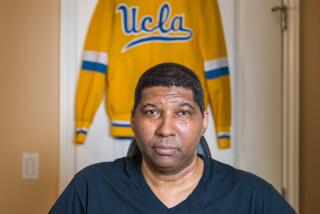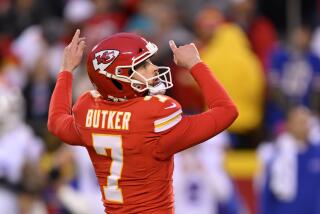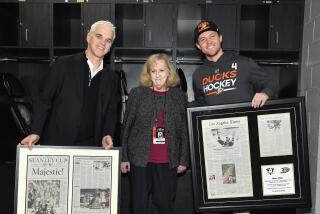Robert Reid Used to Believe He Was Sinning by Playing Pro Basketball
Robert Reid walks into the hotel coffee shop and one waitress does a semi-swoon. Another calls him darling and brings his order with the kind of speed and enthusiasm that win employee-of-the-month awards.
Girls like Robert Reid. A few years ago, Robert Reid spent a lot of time liking them back.
“I rode that wave,” Reid says, chuckling. “I rode that bad, boy. Rode it five miles out, and took my time coming back.”
But girls are only part of the story. Even in the bizarre world of the NBA, there’s no story quite like Robert Reid’s.
I’ve heard of people having religious objections to war, or medical operations, or sex education, or even sex.
But basketball?
That’s the way it was for Robert Reid back in 1982. He was one of the NBA’s most exciting young players, on the court and off. He quit. He turned in his jock and his little black book and his $300,000 contract and went back to church.
A season later he returned.
Here’s the story:
Reid, a 6-8 forward, showed up on the NBA’s doorstep in 1977. He had played ball at St. Mary’s University in San Antonio and was drafted by the Houston Rockets way down the draft list. He arrived at training camp in a taxi, five bucks short on the fare.
Reid made the team. Then he made the starting lineup, ahead of Rudy Tomjanovich. Reid played with flair and grace. He, and his team, were approaching greatness. The center was Moses Malone. The quarterback was Reid.
“I’d say, ‘Moses! Here!’ He’d come set that screen, and I’d jack it up.”
Reid shakes his head, thinking back.
“You come out of nowhere, you make it, everything is going fine, you’re really enjoying yourself. What more could you want?
“Then you come into big conflict, between your life style and what the church considers a proper life style. That’s when you have doubts. You start second-guessing yourself.”
Reid’s church is Pentecostal. His grandmother and mother are devout. The time he spent on the court and in night clubs, they reminded him, was time spent not in church. He didn’t smoke or drink or do drugs, but Reid is a bright, gregarious guy and he did set NBA records for night-clubbing and friendship-making.
The girls called him Bobby Joe, and they called him often.
His elders urged him to quit basketball.
“You have loved ones who are not interested in money and fame, they’re just concerned about your soul,” Reid says. “I decided to quit. I was through with professional basketball. It just wasn’t important to me. I made my decision and I felt good.”
Robert went home to Miami. When he got bored, he took a job in a discount clothing store. Within a week, he was promoted to manager and was raking in $223 a week, exactly $5,546 a week less than he had made in the NBA. But he didn’t care about the money.
“I was able to learn a lot about people, what they go through,” Reid says. “A family of six comes in, the father with his unemployment check. A boy comes in and doesn’t have enough money to buy a shirt. I would let kids work in the store, and I would put my own money in the register.”
A man came into the store one day, scooped up an armload of clothes, and ran. Reid chased the man outside and around a corner, to a car where the man’s buddy was waiting, pointing a .38 at Reid. End of chase.
“I’m no Joe Mannix,” Reid says.
A couple of times, the cops called him at home at 3 in the morning. The store had been broken into. Reid would go down to the store, pull out a cot, grab a baseball bat and guard the store until morning.
“It was a rough part of town,” he says.
Then he went to work at a cement plant, putting in 14-hour days and taking classes at night. He was studying to become a fireman.
“I got a feeling for what it was like to work long hours, come home, shower, and eat your dinner with your left hand holding your head up,” he says. “I started to realize what working fathers, husbands, go through.”
He was about to join the fire department when the Rockets called and asked him if he would come back. For a week, he walked lonely beaches, looking inside his soul. He was married now, with a child, but he didn’t miss the money. He missed the ball.
He decided that his personal religious beliefs were not in conflict with his athletic goals. In many ways, in fact, they were complementary.
His mother, grandmother and wife objected. But this time, Robert felt strong inside.
“This is Robert Reid’s life,” he told himself.
He went back to Houston.
Last season he averaged 14 points. This season, the season of the Twin Towers, Reid is no longer a starter. He is a key player off the bench. He can live with that. He has what you might call a unique perspective on the game.
Reid looks around the hotel coffee shop. It’s sunny outside. He has an afternoon to kill. He’s working on 20 bucks’ worth of shrimp and guacamole and milk shakes.
“I sit here and think about people,” he says. “The guy who carries your bag in, the guy at the desk who checks you in. Their whole life is governed by a clock. They might get a half-hour for lunch. We complain if the coach makes us go an extra hour after practice.”
When the complaining starts, Robert just leans back.
“I smile to myself and say, ‘Hey, if you only knew.’ ”
More to Read
All things Lakers, all the time.
Get all the Lakers news you need in Dan Woike's weekly newsletter.
You may occasionally receive promotional content from the Los Angeles Times.






